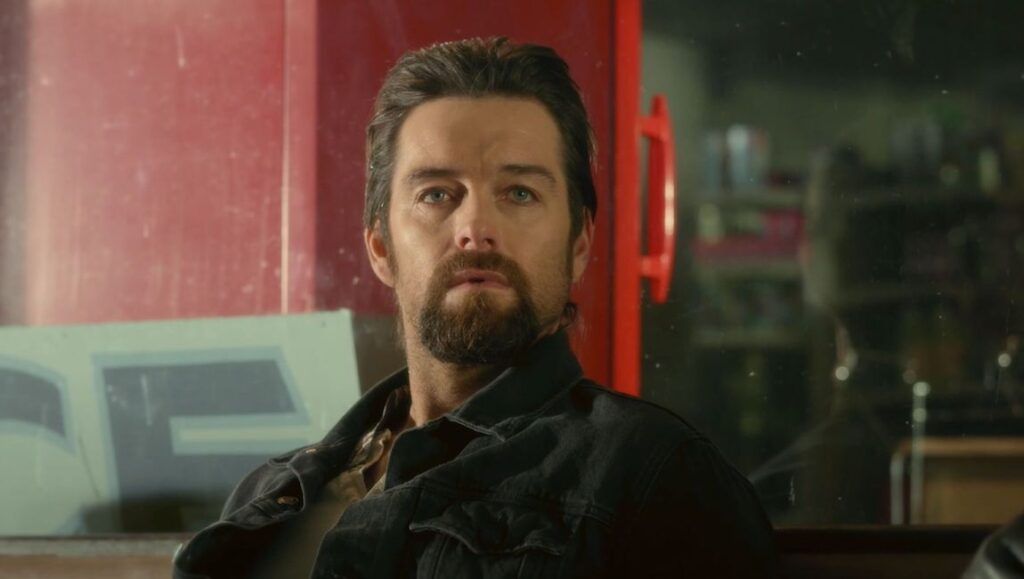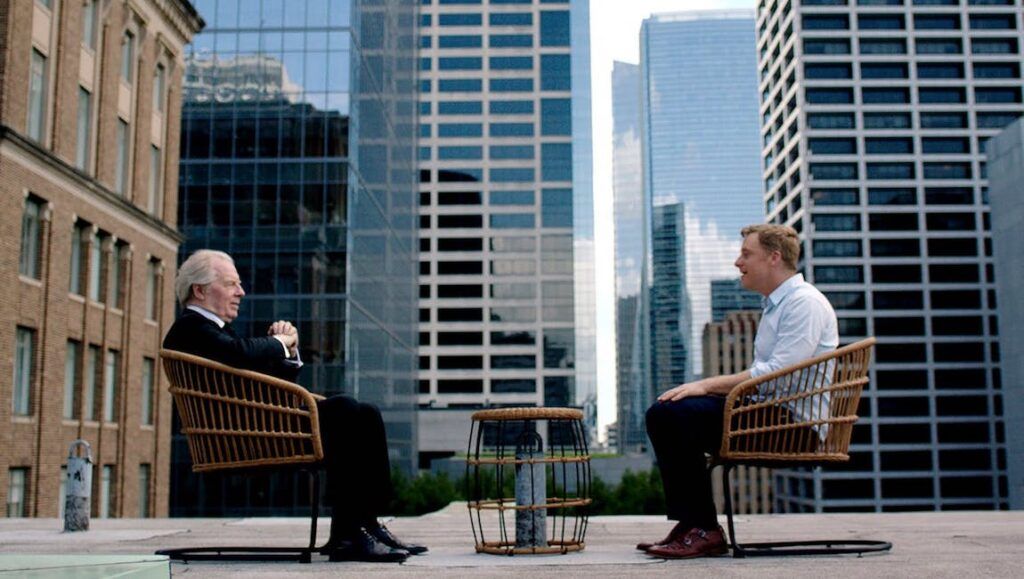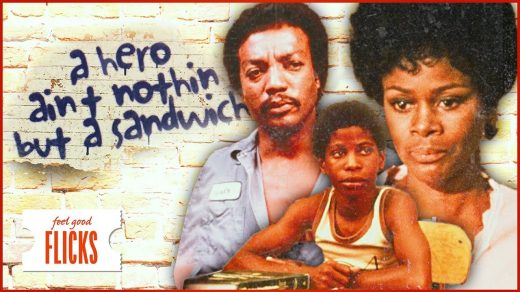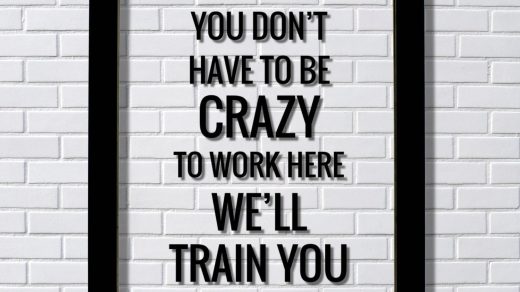Before We Vanish | August 2021: Whirlybird, United states Sausage Standoff, What We Remaining Unfinished
Alright, so things don’t actually vanish anymore: even probably the most limited movie release will (probably, eventually) find its method onto some streaming services or into some Digital video disc bargain bin let’s assume that those remain by enough time this sentence finishes. Put simply, while the name of In Evaluation Online’s monthly feature specialized in current domestic and global arthouse releases in theaters will ideally bring focus on a deeply underrated (also by us) Kiyoshi Kurosawa movie, it isn’t an ideal title. Nevertheless, it’s constantly smart to catch-up with movies before some… other activities take place.
Whirlybird
Charting the expert milestones and private travails of Zoey Tur and Marika Gerrard, the powerful partners noted because of their contributions to L.The. live reportage (almost all prominently insurance of O.J. Simpson’s demo and high-rate freeway chase), Matt Yoka ’s Whirlybird secures to its stringer’s paradise the earthly anchor of empire in freefall. For a lot of its runtime, the movie proceeds not across the standard axis of retrodiction well-liked by likewise end-motivated, “rise-and-drop” documentaries, but rather follows its subjective route across the experiential crests preventive of both reflection and forethought. This proves at the very least somewhat imperative to leveraging the instant, immersive appeals of the duo’s labors to generate an engaging tenor, but quickly proves bored with any reflective insight from their present-time avatars.
Zoey’s induction into her part is usually fraught with complication, dealing with serious impediment through financial anxiety and restricted usage of newsworthy scenes. Even with conserving up adequately to demand credit for a information helicopter, the psychological toll of her regular proximity to passing away and violence manifests silently, culminating in a mid-job interview breakdown while talking about her protection of the Aeroméxico Trip 498 crash. Like responses are few in number, however; her knowledge of the work corresponds to a sensational apathy towards the human being crises documented by her companion – an especially chilling segment, filmed through the 1992 LA riots, depicts the defeating of Reginald Denny in graphic details, fixed to Zoey’s commentary as she beseeches rescuers from the protection of a helicopter before providing despondently, “It’s vital that you see the dark part of the town”. Her carceral instincts in reaction to the incident, providing eyewitness testimony contrary to the L.The. Four, situate the bourgeois passivity of the preceding footage (predictably) within the ranks of liberal moralism and justice-searching for, but Yoka’s placidly observational attention hardly deigns to supply a motivational or emotional foil because of this supposition, or even to adopt any essential stance relative to the logical trajectory of intent evinced by his selected materials.
Though an oversight such as this one doesn’t sign up distastefully in as soon as, it’s a questionable omission of context when accounting for the film’s structural corporation as a cautionary tale and obvious lack of endorsement for anybody featured; proffering room for the casual first-individual recount of its archival sequences but curiously shying from asserting as well conspicuously their even more troubling implications. It’s not that they’re comparatively unimportant in the bulk of assemblage presented: conserve for the above-described O.J. broadcasts, Whirlybird remains largely made up of filler footage overlaid with the off-display screen couple’s musings about their disintegrating connection and stressful working circumstances. The choice of visible accompaniment hinges almost completely on producing momentum, and the recreation of an in depth synchrony, in its overplotted spectral range of disarray (or instead, the optical impact of disarray instead of undertaking investigation into its incrementally tilled and tiered elements), winnows down any possibility to trace documented history’s continuity in to the here and today, failing to perform justice to the innate complexity of Zoey and Marika’s perspectives, specifically with the latter becoming unfairly sidelined. Threads regarding Zoey’s abusive familial previous, unfulfilling childhood, and her sex dysphoria pre-reassignment, as well, inch their method into conversation, and depart briskly with all the current need for biographical footnotes or pop trivia. As the seeming reticence to go over them closely is possibly a valid personal selection due to the sensitivity of these content, Yoka’s choice to devote a heartbreaking confessional bookending the movie intimates an open up and forthcoming attitude seldom seen here, and also the possibility of a far more genuine dialogue emerging from the more subject-oriented/mediated approach. Rather, Whirlybird disappoints using its bland journalism, ironically, producing for an event-large, informational pamphlet and small else.

Credit score: Samuel Goldwyn Movies
American Sausage Standoff
The initial question that must definitely be questioned of American Sausage Standoff needs to be: what the hell, really, is definitely this? Danish actor Ulrich Thomsen, perhaps most widely known for his major function in Thomas Vinterberg’s The Special event , and accompanied by a complete mess of leading functions in prestige Danish movies, writes, directs, creates, and co-edits this woefully misbegotten tale of Midwestern United states hypocrisy. It’s a movie that desperately really wants to be considered a barbed dark humor in the vein of the Coen Brothers (or the task of modern Anders Thomas Jensen), but additionally a somber thinkpiece on Trump The united states, and while there’s a disagreement that it functions as a satire, everything here’s therefore broadly drawn that it ideas into purely parodic territory, and that’s even prior to the starting credits roll. ASS may be the type of movie where grizzled voiceover narration introduces us to a tale of Jesus Christ, a receding hairline, and how exactly to unfold, thanks to a police sheriff (Possibility Kelly) who waxes philosophical on sausage. He patrols on the city of Gutterbee, a little dirt bowl in the center of nowhere, a location gasping on its final breaths. Townsfolk are departing in droves, financial possibilities a thing of days gone by, leaving regional bigot Jimmy Jerry Lee Jones Jr. (W. Earl Brown) in control. Along with his child Hank (Joshua Harto), Jimmy has had it upon himself to rid the city of any “undesirables,” which basically quantities to anyone who isn’t whitened and American-bred (you understand the sort). He shortly gets a wake-up contact whenever a German immigrant and sausage aficionado by the title of Edward Hofler (Ewen Bremner) rolls into city, sights set on starting an authentic German eating place. It isn’t a long time before the two are usually butting heads, with Edward representing the modern-day melting pot United states dream while Jimmy means old-fashioned, conservative American ideals that are around as hypocritical because the church over which he presides.
Tonally, United states Sausage Standoff is really a mess of epic proportions. Long-winded and enthusiastic monologues concerning the deeper signifying of sausage are usually intertwined with moments of a naked Asian guy getting tortured and pressured to trip out of city on a bicycle. Somewhere else, that the religion where Jimmy participates is completely fabricated appears like a flimsy excuse for Thomsen to flee possible criticism with regards to his critique of particular brand names of organized worship, which will be symptomatic of the issue in the centre of United states Sausage Standoff : it does not have any real guts, which results in its “satire” completely neutered. Thomsen in fact brings a distinctive perspective for the reason that he displays a foreign viewpoint, like his protagonist, however his vision of The united states can be painfully reductive; it usually comes across as though his only understanding of Midwestern The united states has been gleaned from MadTV sketches. There’s furthermore a weird stress of homophobia infecting the movie that Thomsen insultingly posits as acceptance: the type of Hank, Jerry’s boy, is certainly gay, and the viewer will be instructed to recoil in horror as Jerry identifies him as a “fruit-flamin’ butt-hugger,” while just moments later Thomsen gifts another character’s acceptance of their own homosexuality as a tale, adorning him in stereotypically colourful garb because the local bartender immediately acts him a tropical beverage embellished with umbrellas. And there’s no stage in functioning through the seriously problematic territory of 1 homophobic character getting anally raped by way of a horse, the whole lot performed for laughs – brutal comeuppance as irony – nor the part where in fact the film finishes with a gay personality sucking on a sausage. There’s furthermore suicide thrown in to the middle out of all the cess because, once again, Thomsen lacks any kind of handle over tone.
It shouldn’t shock to listen to that United states Sausage Standoff can be an utter shitshow, and something for the age range at that. How Thomsen were able to rope Oscar-successful cinematographer Anthony Dod Mantle into these proceedings will be anyone’s guess, however the film definitely looks gorgeous, its eyesight of Middle The united states a color-corrected hallucination of bleached skies and unnatural landscapes; at the very least somebody in this movie knew what these were carrying out. But the the next time Thomsen feels another interest project stirring within, he’d be wise to check out the nearest restroom and down payment it in the complete place that American Sausage Standoff rightfully belongs.
What We Still left Unfinished
1921. 1989. 2021. The cycles of imperial superpowers invading, occupying, and summarily abandoning Afghanistan operate their training course with horrifying regularity to the stage of near mundanity. To American and European onlookers, even the title of the country is becoming virtually synonymous with chaos, signifying everything whitened Westerners fear – spiritual extremism, political insecurity, and the idea that, without specific leaders in power, which could one day become us. Amongst all of the baseless fear-mongering and legitimately legitimate, reasonable fear-mongering, it’s much too easy to lose view of humanity. Lifestyles are resided under occupations, between wars, and, crucially, art continues to be produced. It’s in the violent, tumultuous transitions of strength that artwork is precarious, whether the centuries-older Buddhist monuments destroyed by the Taliban or the innovative infrastructure torn aside by regime adjustments.
Mariam Ghani ’s documentary What We Remaining Unfinished explores the situations of five movies, born during an creative golden age when financing for the arts had been easily available, and reluctantly abandoned through the subsequent unrest following Soviet withdrawal from Afghanistan. Ghani combines newly obtainable archive footage from those unfinished movies with interviews with the creatives included to generate what is efficiently a period capsule of an extremely specific time period in the country’s creative and political background. Ghani’s interviews are much less worried about the technical aspect of filmmaking in a precarious condition than with retelling anecdotes of the period, financing a loose, unstructured sensibility to the movie that both complements and clashes with the director’s visual design; when certain tales are related, Ghani’s usage of archival footage functions in tandem with her interviewees, during other cases, her collection of pictures seems wholly careless. Also, this informal structuring and muddied usage of the movies themselves can result in the complete affair feeling similar to good ol’ days-design reminiscence instead of urgent, political function.
But probably what’s nearly all trying in What We Still left Unfinished will be that it, like its material, feels genuinely incomplete. Owing partly to the continuous conflicts in your community, but additionally to the filmmakers’ insufficient any real guiding construction, there’s not the barest hint of quality to be found right here, and while which may be a precise reflection of today’s reality, it doesn’t lead to a lot of a satisfying movie. This unique period capsule of a documentary is usually challenging by its very character, concerned as it has been the incomplete, but despite successfully memorializing the lost movies of the Soviet-Afghan period, What We Left Unfinished will go no more than that work of archivalism. While possibly an interesting record of an under-explored time period ever sold, there aren’t any excellent revelations found right here, and by the finish of the movie, there exists a distinct feeling that probably the most interesting queries are the types left unanswered, and also perhaps unasked.

Credit: Watershed MOVIES
Actively playing God
You might end up being forgiven for mistaking the brand new con performer dramedy Actively playing God for just one more Conservative-leaning, faith-based task from the PureFlix assembly range, house of the godforsaken God’s Not really Dead collection. But despite the fact that writer-director Scott Brignac provides the Big Man himself in to the proceedings here, he’s got no explicit fascination with plumbing the depths of modern-day faith or faith. Instead, Actively playing God busies itself with the low-level unlawful activities of its main protagonists, twin siblings Rachel (Hannah Kasulka) and Micah (Luke Benward). Don’t allow biblical brands fool you, though, because the two impeccably-dressed and drool-worthy twenty-somethings are in fact grifters who swindle anyone who crosses their route; scruples come in notably short offer when you fraud pregnant newlyweds with a bogus “Help an Orphaned Kid in Need” plan. Forced to cover back thousands to a violent businessman who places them on a stringent two-7 days deadline, the bro-sis duo arranged their sights on Ben (Alan Tudyk), a wealthy business owner on a spiritual quest following the tragic demise of his young girl. The program: the set will pose as individual angels, doing work for God himself, who provides come to Earth to greatly help Ben in his period of need. Along the way, they’ll locate the secure within his mansion and rob Ben blind, because the guy is notoriously “unbanked.” In the meantime, Michael McKean has Frank, the.k.a. God, a roller rink proprietor and criminal mentor to Rachel and Micah who views only dollar signs, as long as he doesn’t allow role head to his mind.
It’s understandable that Enjoying God will be seriously stupid in conception, boasting a plot which makes no feeling within the context of anything resembling the “real life.” Yet, Tudyk delivers a efficiency of spectacular emotional heft, one which completely markets his character’s desperate plumbing of the unanswerable. Rawness, anger, and vulnerability are usually legitimately sensed in Ben’s character, entirely unforeseen yet wholly necessary to ensure that any of this materials to emotionally resonate using its viewers. Tudyk gets a good help from Kasulka, who provides a hard-edged fragility to her usually stock personality, while McKean continues to be a pleasure to view, even though he doesn’t have very much to accomplish here. And like worthwhile con game, Playing God includes a twist up its sleeve, but one which right here renders the proceedings a lot more treacly than essential, even though it introduces a thematic wrinkle that isn’t completely unwelcome. Eventually, though, Enjoying God is really a tale of fathers: the nice ones, the bad types, and the absent types. That is wrapped inside a tale regarding the holiest of fathers Himself is obviously a clever maneuver, or even a touch too obvious. Brignac obviously means well, even while his flawed movie stumbles lots of times, particularly when it involves the whiplash-inducing characterization of Micah. But because the finish credits roll, if the littlest of lumps types in your throat, simply chalk it up to small miracle, the type that elevates an normally mediocre film on power of its landing.
Bloodstream Conscious
Bloodstream Conscious , the debut feature from writer-director-editor Timothy Covell, starts on an email of ripped-from-the-headlines horror, as siblings Kevin (Oghenero Gbaje) and Brittney (DeShawn Light) – associated with fiancéelectronic Tony (Lenny Thomas) – reach a lakeside resort and then discover that most of its visitors, including their moms and dads, have been murdered by way of a crazed shooter (Nick Damici). Claiming that the people had been possessed by demons, the gunman retains the trio hostage, leaving a chain of activities in which the range between paranoia and genuine madness will become dangerously blurred. Therefore, for its very first half, Bloodstream Conscious is really a tale of survival, as our three protagonists desperately make an effort to gain top of the hand against their apparently deranged assailant. But with the arrival of a stranger at the film’s mid-stage – a middle-aged female called Margie (Lori Hammel), experiencing the apparent ramifications of PTSD – the movie evolves into another thing entirely, a modern-time riff on FINISHED . wherein the humanity of every of the character types is named into question.
Compared to that point, it’s specifically these different twists and turns of the script that produce Blood Mindful this type of compelling watch, even while the technical specs neglect to deliver. The movie is actually a low-budget affair, however that doesn’t specifically excuse the atrocious dialogue or the subpar performances – save for Damici, that’s, who, as constantly, is really a welcome presence. Most the film occurs in horribly underlit places where it’s near difficult to tell what activity is transpiring, a details that could conceivably be utilized to create tension but rather here just breeds frustration. The rating, thanks to Sam Tyndall and Akari Uchiyama, is properly billed, fraught with dissonant strings and prolonged wails, although, as that explanation fairly explicates, it’s definitely nothing uncommon or ambitious for the genre. But as simple as it would be to discover fault with the film’s small-scale constraints, there’s something around its plucky, DIY spirit that proves pretty infectious. It will be easy to picture a Hollywood remake that irons out these lines and wrinkles, sure, but that could also take away the homespun appeal that’s inherent within. Bloodstream Conscious is not any threat to become genre traditional, but taken alone terms, there’s plenty good enough for horror enthusiasts to take pleasure from in the film’s smart manipulations.




Recent Comments